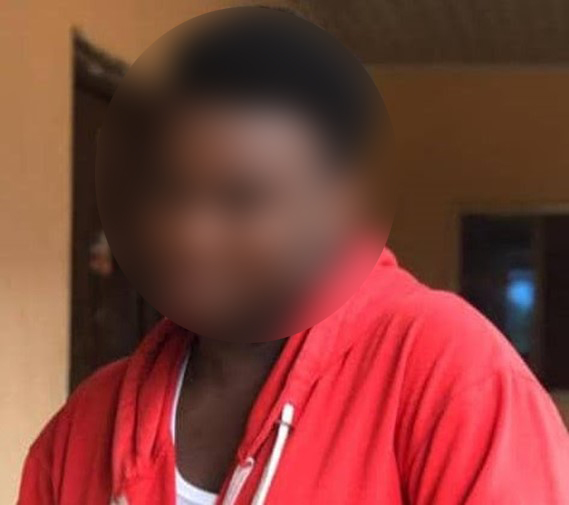University Counselling Units Need To Enhance Visibility To Deter Suicides Among Nigerian Students
Three Nigerian higher institution students die of suicide within two months, bringing attention to the need for enhanced mental heath aid at guidance and counselling units.

Suicide cases are becoming worrisome in Nigerian higher institutions of learning. Between March 12 and 22, 2021, two suicides were recorded at two universities.
The departments of ‘Guidance and Counselling’ where students are expected to bare their minds for mental health support is not so popular among students, HumAngle has found out.
On Monday, March 22, Arikekpar Lucky, a 200-level student of the department of History and Diplomacy at the Federal University Otuoke (FUO), Bayelsa State, South-south Nigeria, died of suicide to escape being tagged an “academic failure” by his family. He was born in 1992 and was a one-time aspirant as representative of the Ijaw Youth Council (IYC).
Popularly known as Don Zednas, 27-year-old Lucky was said to be battling depression before his untimely death.
He was reportedly trying to escape from “family pressure” over his academic performance, according to his friends. Reports indicate that it was not the first time Lucky had attempted, as he made attempts on two occasions in 2020.
“His family is always complaining that he spends too much effort, time and money on Ijaw Youths Council (IYC) politics rather than to face his studies,” a friend said.
It does not end there
Many students facing mental health challenges are not aware of the existence of the counselling units at their respective higher institutions of learning.
Before Lucky’s case, on March 12, Daniel Mba, a 300-level student of Biochemistry Department, University of Nigeria Nsukka, (UNN) died of suicide.
Mba from Aninri Local Government Area of Enugu State, Southeast Nigeria was caught cheating with his phone during an examination in his school.
He reportedly left the examination hall and went to his lodge at Onuiyi, in Nsukka Local Government Area of Enugu State. He died around 11.34 p.m. WAT.
A third suicide happened on Tuesday, April 20, to Adedeji Emmanuel, a second-year student of Management and Accounting at the Faculty of Administration, Obafemi Awolowo University, Ile-Ife, Southwest Nigeria.
Emmanuel reportedly died of suicide in the early hours of Tuesday. Confirming the incident on Tuesday afternoon, the management of the institution announced that an investigation has been launched to unravel the circumstances behind Emmanuel’s death.
Counselling units
While the motive behind Emmanuel’s suicide is yet to be established, some students said it might be due to academic stress or financial difficulties.
- Oyatokun, the institution’s Acting Chief Security Officer in a statement, said “we advise that students utilise the Counseling Unit of the School when dealing with psychological issues or academic issues that are taking a toll on their mental health.”
He added that the institution’s management has never relented in its efforts to strengthen “relationships with Mental Health Support Initiative (a group of mental health experts and enthusiasts).”
Speaking with HumAngle, Ajani Kayode, a final year student of the institution, likened the current mood of students, following the incident, to a sad one.
“The current situation of things is that students are currently not happy with this recurrent suicide news, and this can’t be far-fetched from academic stress and pressure students go through on a daily basis,” Kayode said.
“We don’t know who’s next, our ability to manage stress and academic pressure is not the same.”
This incident is the latest in recent cases of suicide among undergraduates in the country.
Speaking on the situation, Gbenga Oyetola, a Psychologist, told HumAngle that Nigerian institutions must create safe spaces where students can freely walk in to make consultations on issues bothering them which could range from academic performance to financial stability.
“Quite a number of universities have counselling units or something related that have been set up to take care of mental health issues among students. However, it’s sad that most of them are not as effective as they ought to be,” the Ibadan-based psychologist said.
He noted that to prevent and reduce the possibility of future occurrences, tertiary institutions in the country should make Counseling units more effective by creating awareness and making them easily accessible.
Are said counselling units accessible?
Lamina Ameenah is a third-year student of the English Department at OAU but she has never heard of the guidance and counselling unit. “No. I don’t know whether it exists,” she said.
Ameenah said her mum’s guidance is what she seeks anytime her mind is clouded by uncertainties and sometimes she talks herself out of it.
She believes an active and visible counselling unit would go a long way to prevent the growing cases of suicide among students in her school. She, however, noted that students’ view of it is also important for it to be effective. “It still depends on how students perceive it when they know about its existence.”
Unlike Ameenah who has no idea about the existence of a counselling unit in her school, Joy*, a Biochemistry student, knew it exists because, occasionally, she passes through the unit’s office.
However, she told HumAngle that she can’t really gauge the level of effectiveness of the unit because she has never really heard or seen anyone visit the place.
Even though she opined that the counselling unit needs to be more effective and visible, she stressed that it is also important for the school’s management to redesign the system and make learning less stressful and the environment more conducive.
Speaking further, Ajani Kayode, who is a student of the Guidance and Counselling Department, said the primary problem with the unit is that only a few people know about its existence.
“Let me say about 70 per cent of students on campus don’t even know that we have a unit called guidance and counselling where they can go for advice and a majority of the remaining 30 per cent who know, don’t know what it entails.”
According to him, even though during the orientation of freshers, students are introduced to the guidance and counselling unit, students don’t pay attention to that part.
“The unit has not been ineffective not because the counsellors are not capable of solving mental issues but the rate at which students visit the department is very low. This can be attributed to its low publicity,” he added.
Support Our Journalism
There are millions of ordinary people affected by conflict in Africa whose stories are missing in the mainstream media. HumAngle is determined to tell those challenging and under-reported stories, hoping that the people impacted by these conflicts will find the safety and security they deserve.
To ensure that we continue to provide public service coverage, we have a small favour to ask you. We want you to be part of our journalistic endeavour by contributing a token to us.
Your donation will further promote a robust, free, and independent media.
Donate HereStay Closer To The Stories That Matter






